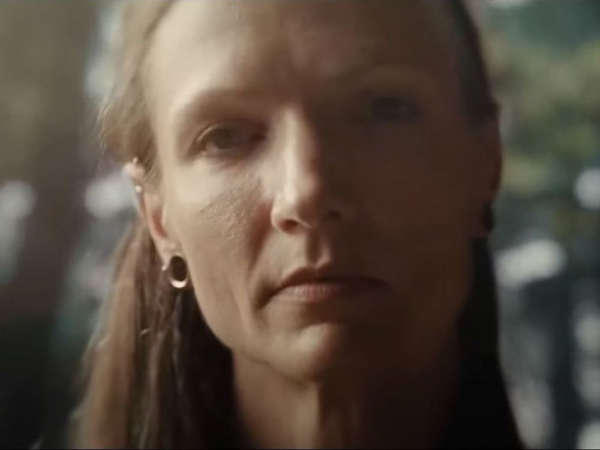A 37-year-old Canadian woman featured in a fashion company’s disturbing pro-euthanasia ad had wanted to live.
But after “falling through the cracks” for years in the government-run healthcare system, Jennyfer Hatch gave up and agreed to an assisted suicide instead, according to the Daily Mail.
“I thought, ‘Goodness, I feel like I’m falling through the cracks so if I’m not able to access health care, am I then able to access death care?’ And that’s what led me to look into medical assistance in dying and I applied last year,” she told CTV in a recently resurfaced interview from June.
New details about the woman’s story emerged this week in response to outrage about “The Most Beautiful Exit” ad from fashion company La Maison Simons. The ad showed a terminally ill Hatch celebrating her last days of life before being euthanized under the Canadian Medical Aid in Dying (MAID) law, which killed more than 10,000 people last year, the Mail reports.
The ad, which has been widely condemned for glorifying euthanasia, ends with the message “For Jennyfer, June 1985-October 2022,” suggesting she was euthanized in October. Now, questions are arising about whether she would still be alive today if she had received the proper medical care that she had sought for years.
Follow LifeNews on the Parler social media network for the latest pro-life news!
Using a pseudonym, Hatch, of British Columbia, spoke to CTV in June about her struggles with Ehlers-Danlos Syndrome (EDS) and her failed battles with the Canadian medical system to receive the medical care that she needed. The news outlet confirmed this month that the individual in their June article was Hatch, according to the report.
The interview shows how hopelessness and frustration turned the woman’s thoughts to assisted suicide. Since being diagnosed with EDS a decade ago, Hatch said she has had to struggle to obtain basic medical care.
“From a disability and financial perspective as well, I can’t afford the resources that would help improve my quality of life. Because of being locked in financially as well and geographically, it is far easier to let go than keep fighting,” she told CTV in June.
When her condition became terminal, she said she did not even receive proper palliative care, the St. Thomas Times-Journal reports.
Here’s more from the report:
However, B.C. was quick to approve Hatch’s application for MAID. “There were no other treatment recommendations or interventions that were suitable to the patient’s needs or to her financial constraints,” reads a CTV excerpt of the MAID approval issued to Hatch by Fraser Health, the health agency serving B.C.’s Lower Mainland.
None of these complicating factors were mentioned in the Simons ad, which instead highlighted what it called the “hard beauty” of assisted suicide.
The fashion company recently removed the ad in response to the outrage.
The news of Hatch’s real situation comes amid numerous reports of coercion and abuse under the 2016 law. In another widely publicized case, a Paralympian and retired military corporal said the Department of Veterans Affairs offered her an assisted suicide after she repeatedly requested a wheelchair ramp for her home.
Canada legalized assisted suicide, referred to as MAID, for adults in 2016. Recently, lawmakers began debating whether to expand the law to allow mentally ill people and young children to be euthanized. One bill would allow doctors to euthanize patients without their consent, according to the Euthanasia Prevention Coalition.








